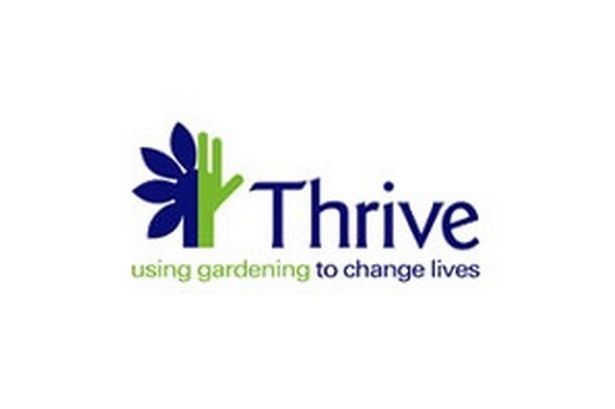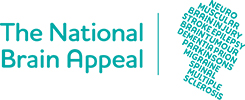2018 was a quieter year for Remembering Not to Forget in terms of fundraising, following the death of Bridget Turnbull, mother of two of our trustees and part of the inspiration behind establishing the charity.
Read more about our fundraising activities in 2018, and blog posts about the complicated process of grieving for someone with dementia.
The projects outlined below were due to take place over the course of 2019 and 2020. As a result of the Covid-19 pandemic, some projects experienced delays to the planned activities, while others were able to continue delivering modified services.
Share of Funds raised in 2018
Playlist for Life
Charity Reg: SC044072
£4,000
Playlist for Life supports people with dementia, their families and carers to use personally meaningful music to make life easier and happier. Research shows that such music can help to manage mood and emotions, promote well-being, prompt memories and abilities thought lost, and reconnect and strengthen relationships. Using music that is personal to the individual, the intervention can be scheduled and tailored to be used as when they need it. Its person-centred approach enables a strong connection between the person and the caregiver.
We have supported Playlist for Life in two previous rounds of funding; donating to their volunteer scheme with 2014 funds, and to deliver certified training at Yeovil District Hospital’s Older Adult Ward with 2016 funds. We chose to support them again as we have witnessed ourselves the power of music to reach someone living with dementia, and wanted to support the incredible work the organisation is doing.
Our donation was intended to be used to establish at least 18 Community Help Points in the south west of England to provide information and a helping hand to people who get stuck making or using their personal playlist, sharing the power of personal music and incorporating it into their existing services. The funds were also used to provide free training for up to 2 people each from 18 – 25 local community organisations in the south west to support this process.
Despite the challenges presented by the Covid-19 pandemic, over 70 organisations across the South West of England have signed up to be Playlist for Life Help Points. Playlist for Life were able to find new ways of reaching out to people living with dementia, aiming to reduce the risk of isolation e.g. ‘at home’ delivery services, phone calls and online support calls. New printed resources were produced, and Help Point webinars held to train up new organisations; further links were developed with other dementia charities to maximise the reach of these programmes. Local organisers delivered 40 webinars and informal talks and a new partnership was formed with Bridgwater college allowing the Music Detective Skills webinar to be delivered to over 60 students from a range of different disciplines.
BRACE
Charity Reg: 297965
£2,000
BRACE supports dementia research at universities in South West England and South Wales, aiming to help medical science understand the causes of dementia, find ways of diagnosing it earlier and more accurately, and develop more effective treatments. Ultimately, they want to help science beat dementia.
We have supported BRACE in every round of grants since we began. Funding research has always been a priority for us, and we have been impressed by the rigour of BRACE’s approach. This grant was used to help provide a dementia specialist nurse based at the dementia clinic at the Bristol Brain Centre at Southmead Hospital. The clinic sees more than 600 patients every year and attracts referrals from Bristol, South Gloucestershire, Gloucestershire, North Somerset, Bath and Devon. The dementia specialist nurse provides patients with post diagnostic support, essential to ensure vulnerable patients receive the best possible care immediately after a dementia diagnosis. She is able to offer patients vital support and advice, the chance to ask questions and address concerns as well as the opportunity to participate in important clinical dementia research.
Despite the Covid-19 pandemic, there was no interruption to the work of the Specialist Dementia Research Nurse. Face-to-face activity had to cease for all but the most comples patients, but the Cognitive Disorders Service continued to run via a telephone service manned by the Cognitive Disorders Specialist Nurses. The support provided has changed to meet the new circumstances, for example:
- Managing individuals with dementia who could not understand the need for social distancing and isolation.
- Those struggling with how to receive groceries when they have been told to stay inside but there are no delivery slots available.
- Patients with increasing confusion – and the nurses need to identify the cause – is it their environment or because they have an infection that needs treating?
For the nurses, conversations with patients often turn to Covid-19 and the strange world we have all been living in. The more people the specialist dementia nurses can support via the helplines the less likely those people are to need to access their GP or local emergency department.
Read more about this vital post, and BRACE’s ongoing fundraising for it.
Rare Dementia Support
Charity Reg: 290173 (The National Brain Appeal)
£2,000
The Rare Dementia Support Service is supported by the National Brain Appeal. It is organised by University College London’s Dementia Research Centre at the National Hospital for Neurology & Neurosurgery in London. It runs specialist support group services for individuals living with, or affected by, a rare dementia diagnosis. 20% of people living with dementia have a rare or atypical form which does not fit society’s perceptions of dementia, frequently affecting skills such as reading, speaking or empathising with others. Rare dementias are also often ‘young onset’ conditions with symptoms emerging in their 30s to 50s.
The Rare Dementia Support Service’s vision is for everyone with, at risk of, or supporting someone with a rare dementia to have access to information, tailored support and guidance alongside contact with others affected by similar conditions. There are 15 meetings held in London every year, as well as 26 regional support groups; over 3,000 people receive information from the service and approximately 1,000 people attend meetings.
Our grant was used to establish a new support group in the South West to expand the reach of these vital services. The group met in person Jan-March 2020, moving to virtual support after the first lockdown was introduced. Twenty six people (carers and people with a diagnosis of dementia) were being supported by the group towards the end of 2020, and this number was continuing to rise. Given the challenges of establishing this group virtually, the funding will be continue to be used to deliver the group in 2021.
Dementia Dog

Charity Reg: SCO22315 (Alzheimer Scotland)
£2,000
The Dementia Dog Project is a charitable collaboration between Alzheimer Scotland and Dogs for Good, bringing together leading dementia support services with the provision of specially trained assistance dogs. The project aims to explore and measure the variety of ways that dogs can be trained to empower people with dementia to live as independently and confidently in their community for as long as possible, with a good quality of life.
We supported this project with a donation from 2017 funds, to support the advanced stages of training of two Dementia Community Dogs. We wanted to continue supporting the fantastic work being done, and this additional grant was used to meet the continuing training costs for these two community dogs: Georgie (based in SW England) and Quill (based in Scotland). Training for the dogs is tailored around the individuals they support; e.g. additional training is required for an individual living with visual impairment alongside a dementia diagnosis. Our donation was also used to meet the costs associated with keeping both dogs fit and healthy (e.g. food, vet, insurance) to enable them to keep helping people living with dementia.
During the lockdown, virtual zoom meetings were offered by dementia dogs and their handlers. The handlers worked closely to develop some new virtual ‘offerings’ to trial with people living with a diagnosis who were shielding in the community to counter heightened levels of isolation and loneliness.
Thrive

Charity Reg: 277570
£1,500
Thrive use gardening to bring about positive changes in the lives of people whose lives have been touched by disability, providing programmes of social and therapeutic horticulture directly and offering training and consultancy to other health, social care and educational organisations. In 2008, Thrive carried out a study into the benefits of horticultural therapy for people with young onset dementia, and they also run training and projects to promote gardening activities for people living with dementia, their families and carers.
We made a grant from funds raised in 2016 to enable Thrive to deliver a 2-day specialist training course in using gardens and gardening to support people with dementia. They had planned to run this course again for 12 -16 activity co-ordinators in May 2020, but the course has been postponed until it can safely take place in person; face-to-face sessions will be much more effective given the hands-on nature of the course.
Wivey Cares

Charity Reg: 1183575
£1,000
Wivey Cares is a small charity established to link people in Wiveliscombe, Somerset who want support to volunteers and local self-employed people (Micro-Providers) who offer a range of services, such as personal care, companionship, support in the Home, help with paperwork and generic advocacy.
Our donation was used to support the establishment of a twice monthly Memory Café to support people living with memory problems and their carers in the local area. Memory Cafés enable people with memory problems and their carers to spend time with others in a similar situation in a relaxed social setting. They provide an opportunity to share information and experiences, reminisce and join in with activities which can help prevent boredom, aid relaxation and promote well-being. Memory Cafés can also provide much needed respite for carers. Prior to setting up the Wiveliscombe Memory Café, the closest Memory Café was in Taunton (approximately 10 miles away), presenting transport and logistical difficulties for local people living with dementia. The group met from September 2019 up until the start of March 2020, restarting in September 2020 but pausing again during the national lockdowns.

